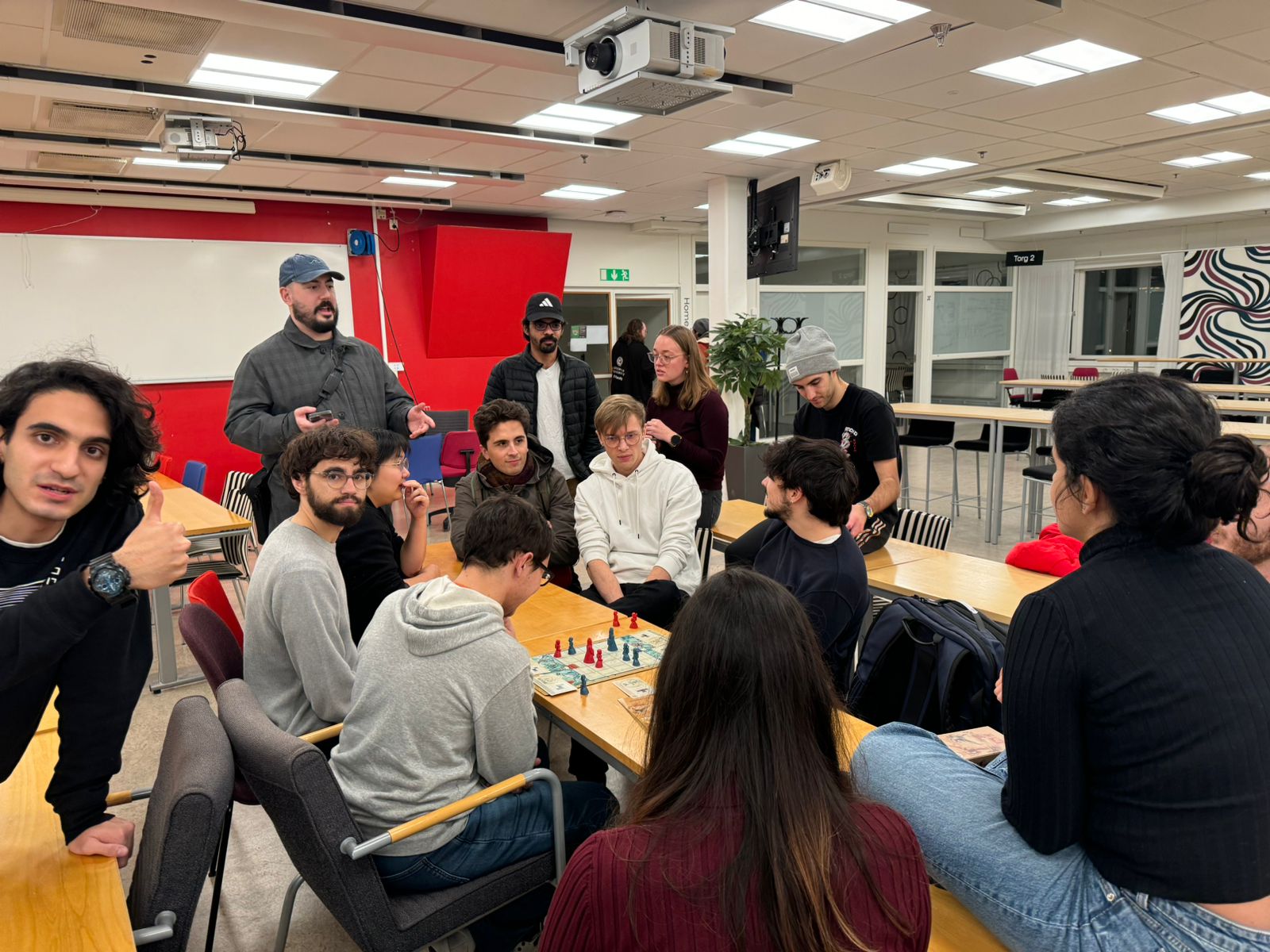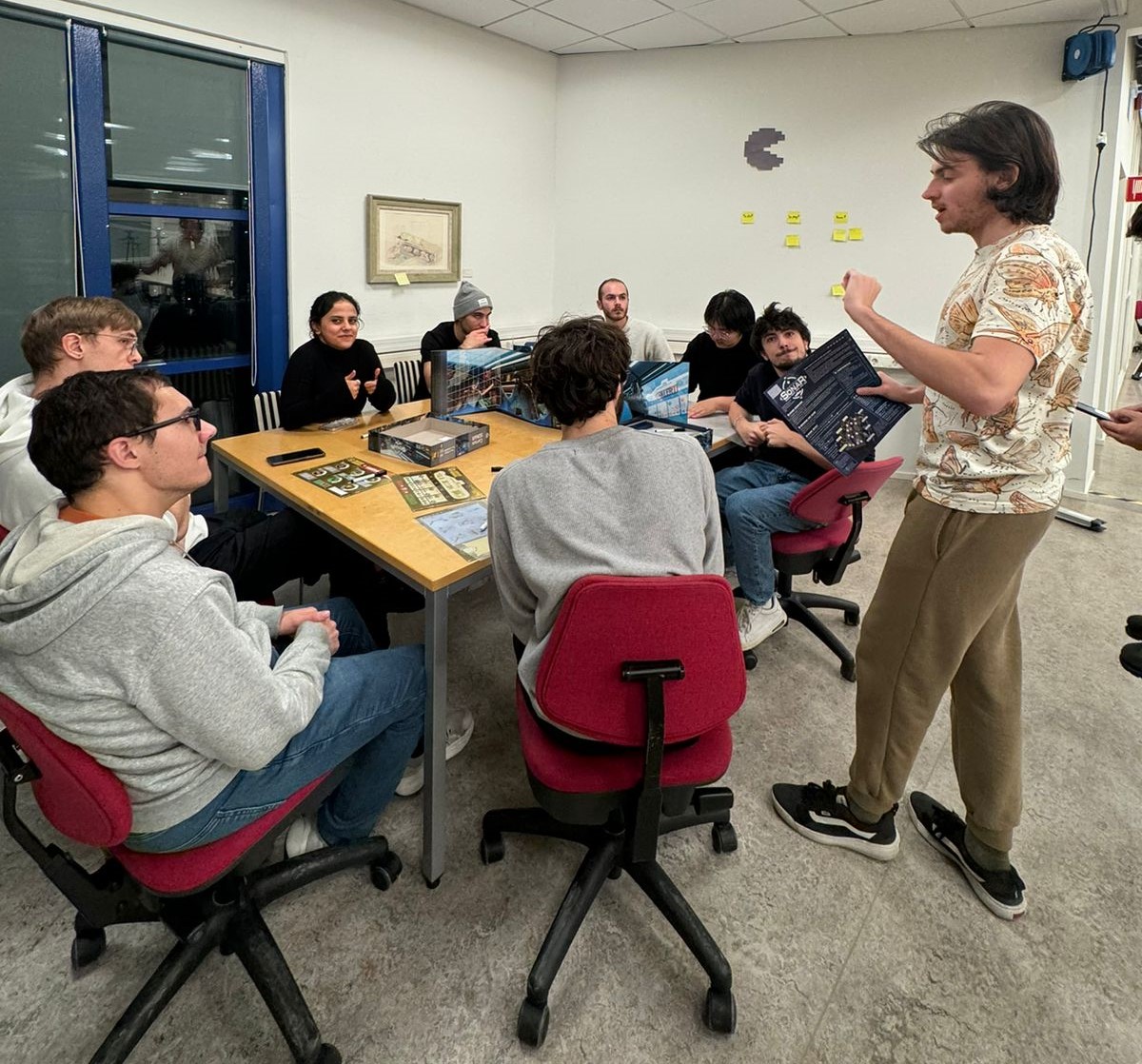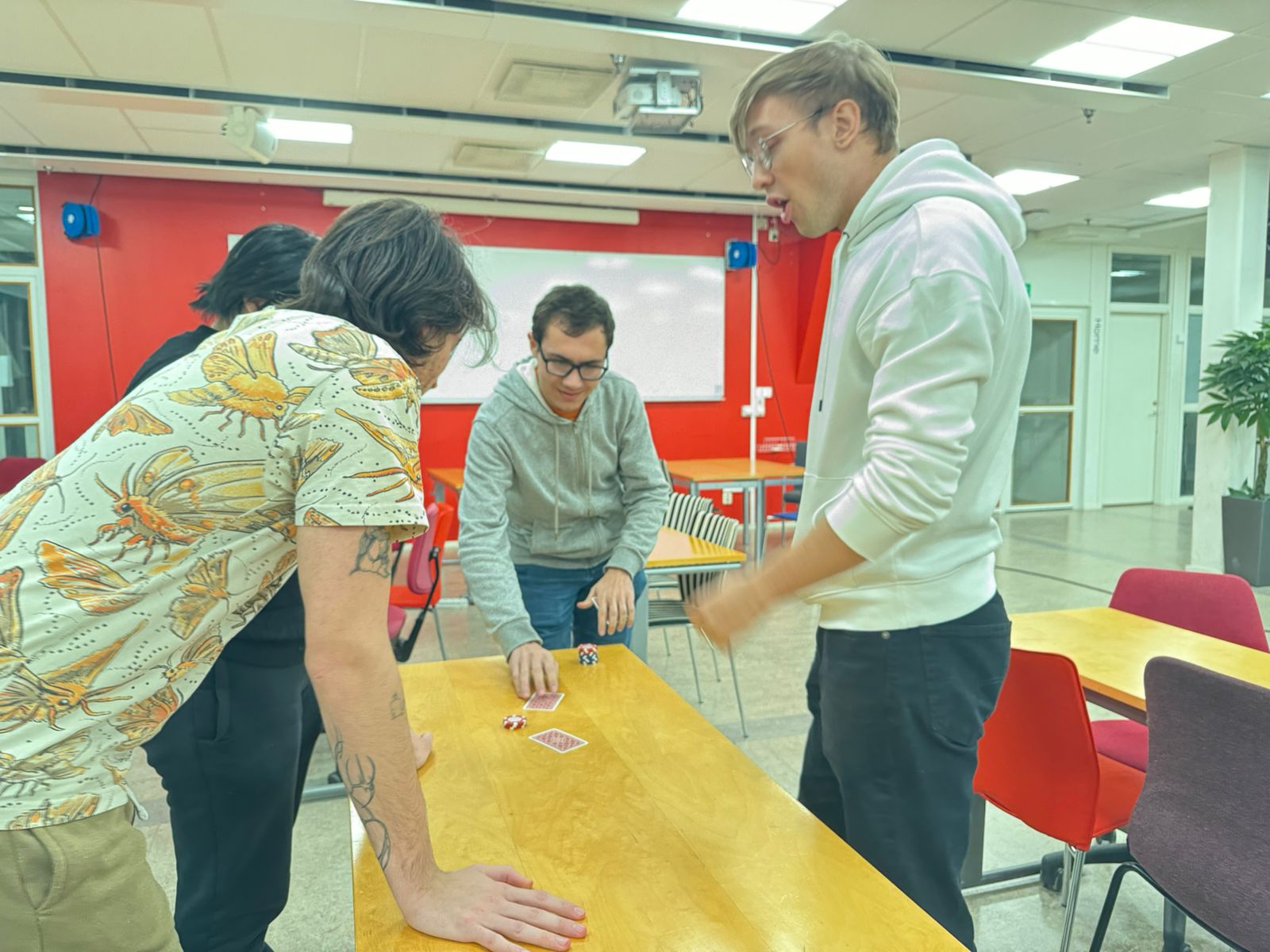"The Games Show" Designing a Mechanics-Heavy Game Show

Inspired by my love for mechanics-driven game shows like 더 지니어스 (Genius) and De Mol, I set out to design one of my own. Collaborating with Zoryana Herman, we created and playtested an episode of The Games Show with game design students as contestants at the University of Gothenburg.

The episode was structured into three distinct phases, each featuring a unique mechanic inspired by these influential shows but tailored to fit the theme and setting of our own creation. The playtest lasted over three hours, culminating in a competitor claiming victory (and a sweet prize). The game ran smoothly, provided plenty of excitement, and was both fun to watch and to play.

Encouraged by the overwhelmingly positive feedback from contestants and onlookers, who expressed a desire to see and participate in more episodes, we are now working on designing additional content and exploring the possibility of filming future episodes.